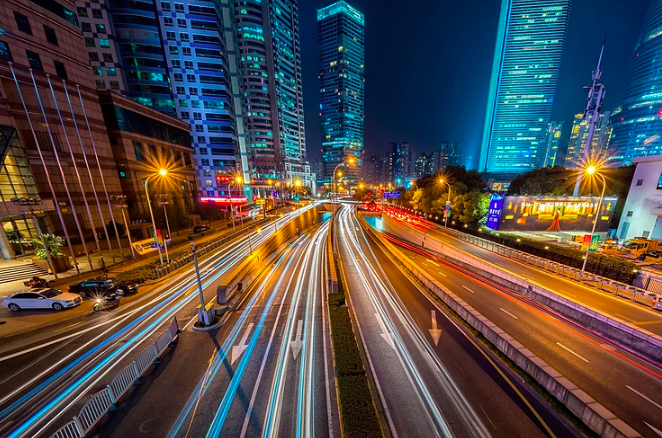Self-driving cars pulling up at the curb as soon as you order an Uber.
No traffic. Maximum efficiency.
Facial recognition that allows to quickly find persons of interest and prevent future crimes. Full security and safety.
Smart cities like these aren’t a utopian future anymore; in fact, we are already on the way towards building these cities of the future today, with the rise of technology such as Artificial Intelligence and the Internet of Things. With the rise of smart technology, the lives of the futuristic city inhabitants will become more fulfilling, comfortable, and secure.
In short, these cities will rely on information and technology to improve the quality of life of the citizens and maximize the efficiency of daily operations. And one way to transform any city into a city of the future would be through employing technology that supports AI and IoT.

Safety and security
Through powerful video analytics, smart cities will be able to ensure inhabitants safety by employing a network of interconnected cameras to identify and recognize human faces, license plates, object features and behavioral patterns. This will open new doors for city police and law enforcement institutions to resolve and even prevent crimes based on data-driven insights.
These opportunities are not fiction anymore. Irex, for instance, has created a cloud-based platform that enables a solution that’s scaleable to cities, small all large: it allows to search through video content and continuously monitor events across millions of cameras and across any device.
The police has already succeeded in putting such technology to use as well: the New York police managed to track down and arrest a rapist who attempted to assault a woman in under 24 hours after the committed the crime by using biometric facial recognition.

Transportation
AI and IoT have the potential to streamline traffic flows and maximize transportation efficiency by reducing congestion, optimizing routes, and minimizing accident risks. Through a similar unified sensor and video surveillance system, AI solutions can assess the traffic in real time, controlling the flow of vehicles and informing the drivers of the wait times and alternative routes.Self-driving vehicles are another new reality that is redefining the way transportation operates globally. Autonomous vehicles will increase the reach of the transportation system within the city to involve more remote areas; they will allow to reduce the number of accidents by “plugging in” to the sensor and video ecosystem and following the safest and most efficient routes for the passengers.

Sustainability
AI and IoT can also help build more sustainable, efficient and environmentally friendly cities of the future. By streamlining water and power usage, smart cities can prevent excess water use, identify leaks and outages, and maximize power savings.
AI can also minimize waste in the city through smart waste management and recycling. Machine learning can perfect the garbage sorting process, establish a communication network in which sensors and smart devices will schedule garbage collection and disposal in the most efficient manner.


